Bernardo Cuteri
Reducing the impact of out of vocabulary words in the translation of natural language questions into SPARQL queries
Nov 04, 2021



Abstract:Accessing the large volumes of information available in public knowledge bases might be complicated for those users unfamiliar with the SPARQL query language. Automatic translation of questions posed in natural language in SPARQL has the potential of overcoming this problem. Existing systems based on neural-machine translation are very effective but easily fail in recognizing words that are Out Of the Vocabulary (OOV) of the training set. This is a serious issue while querying large ontologies. In this paper, we combine Named Entity Linking, Named Entity Recognition, and Neural Machine Translation to perform automatic translation of natural language questions into SPARQL queries. We demonstrate empirically that our approach is more effective and resilient to OOV words than existing approaches by running the experiments on Monument, QALD-9, and LC-QuAD v1, which are well-known datasets for Question Answering over DBpedia.
A logic-based decision support system for the diagnosis of headache disorders according to the ICHD-3 international classification
Aug 06, 2020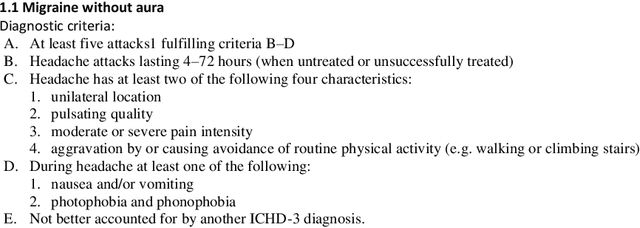
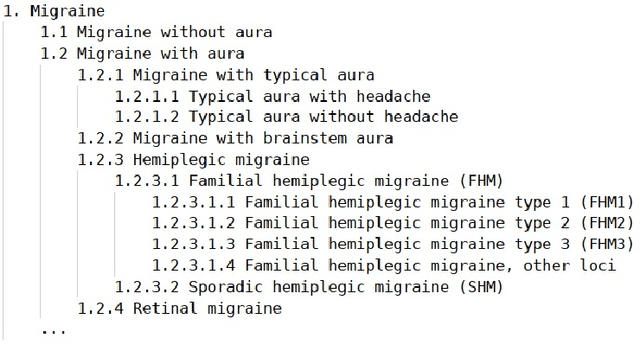
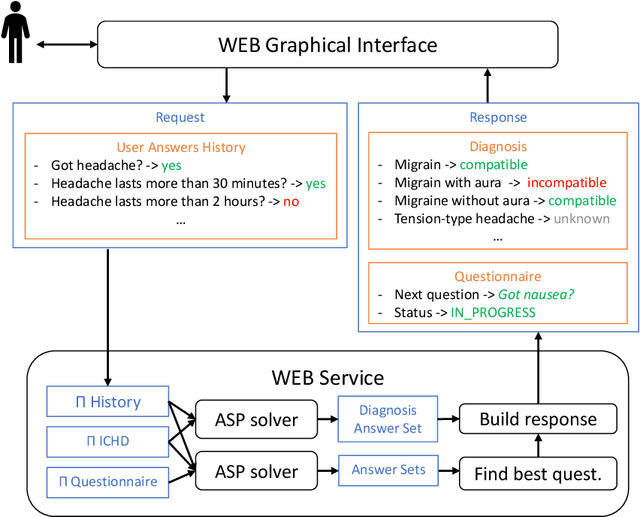
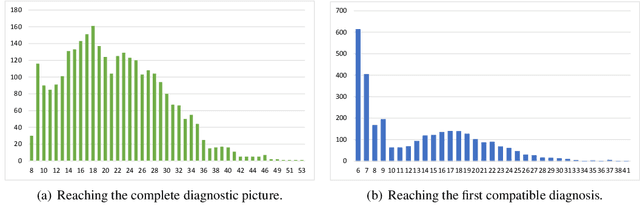
Abstract:Decision support systems play an important role in medical fields as they can augment clinicians to deal more efficiently and effectively with complex decision-making processes. In the diagnosis of headache disorders, however, existing approaches and tools are still not optimal. On the one hand, to support the diagnosis of this complex and vast spectrum of disorders, the International Headache Society released in 1988 the International Classification of Headache Disorders (ICHD), now in its 3rd edition: a 200 pages document classifying more than 300 different kinds of headaches, where each is identified via a collection of specific nontrivial diagnostic criteria. On the other hand, the high number of headache disorders and their complex criteria make the medical history process inaccurate and not exhaustive both for clinicians and existing automatic tools. To fill this gap, we present HEAD-ASP, a novel decision support system for the diagnosis of headache disorders. Through a REST Web Service, HEAD-ASP implements a dynamic questionnaire that complies with ICHD-3 by exploiting two logical modules to reach a complete diagnosis while trying to minimize the total number of questions being posed to patients. Finally, HEAD-ASP is freely available on-line and it is receiving very positive feedback from the group of neurologists that is testing it.
Partial Compilation of ASP Programs
Jul 24, 2019
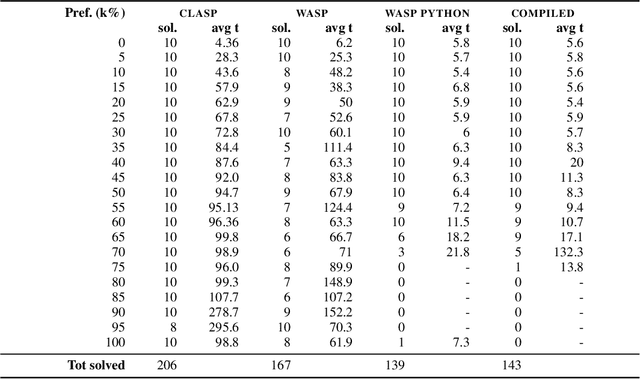
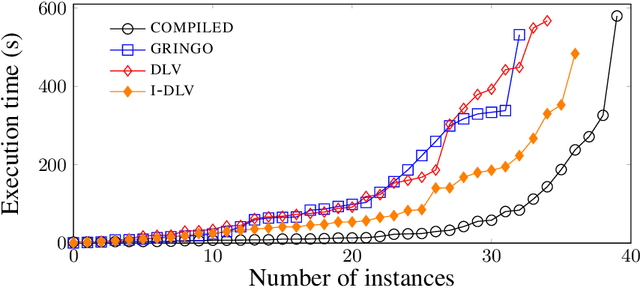

Abstract:Answer Set Programming (ASP) is a well-known declarative formalism in logic programming. Efficient implementations made it possible to apply ASP in many scenarios, ranging from deductive databases applications to the solution of hard combinatorial problems. State-of-the-art ASP systems are based on the traditional ground\&solve approach and are general-purpose implementations, i.e., they are essentially built once for any kind of input program. In this paper, we propose an extended architecture for ASP systems, in which parts of the input program are compiled into an ad-hoc evaluation algorithm (i.e., we obtain a specific binary for a given program), and might not be subject to the grounding step. To this end, we identify a condition that allows the compilation of a sub-program, and present the related partial compilation technique. Importantly, we have implemented the new approach on top of a well-known ASP solver and conducted an experimental analysis on publicly-available benchmarks. Results show that our compilation-based approach improves on the state of the art in various scenarios, including cases in which the input program is stratified or the grounding blow-up makes the evaluation unpractical with traditional ASP systems.
Constraints, Lazy Constraints, or Propagators in ASP Solving: An Empirical Analysis
Jul 13, 2017



Abstract:Answer Set Programming (ASP) is a well-established declarative paradigm. One of the successes of ASP is the availability of efficient systems. State-of-the-art systems are based on the ground+solve approach. In some applications this approach is infeasible because the grounding of one or few constraints is expensive. In this paper, we systematically compare alternative strategies to avoid the instantiation of problematic constraints, that are based on custom extensions of the solver. Results on real and synthetic benchmarks highlight some strengths and weaknesses of the different strategies. (Under consideration for acceptance in TPLP, ICLP 2017 Special Issue.)
* Paper presented at the 33nd International Conference on Logic Programming (ICLP 2017), Melbourne, Australia, August 28 to September 1, 2017. 16 pages
 Add to Chrome
Add to Chrome Add to Firefox
Add to Firefox Add to Edge
Add to Edge